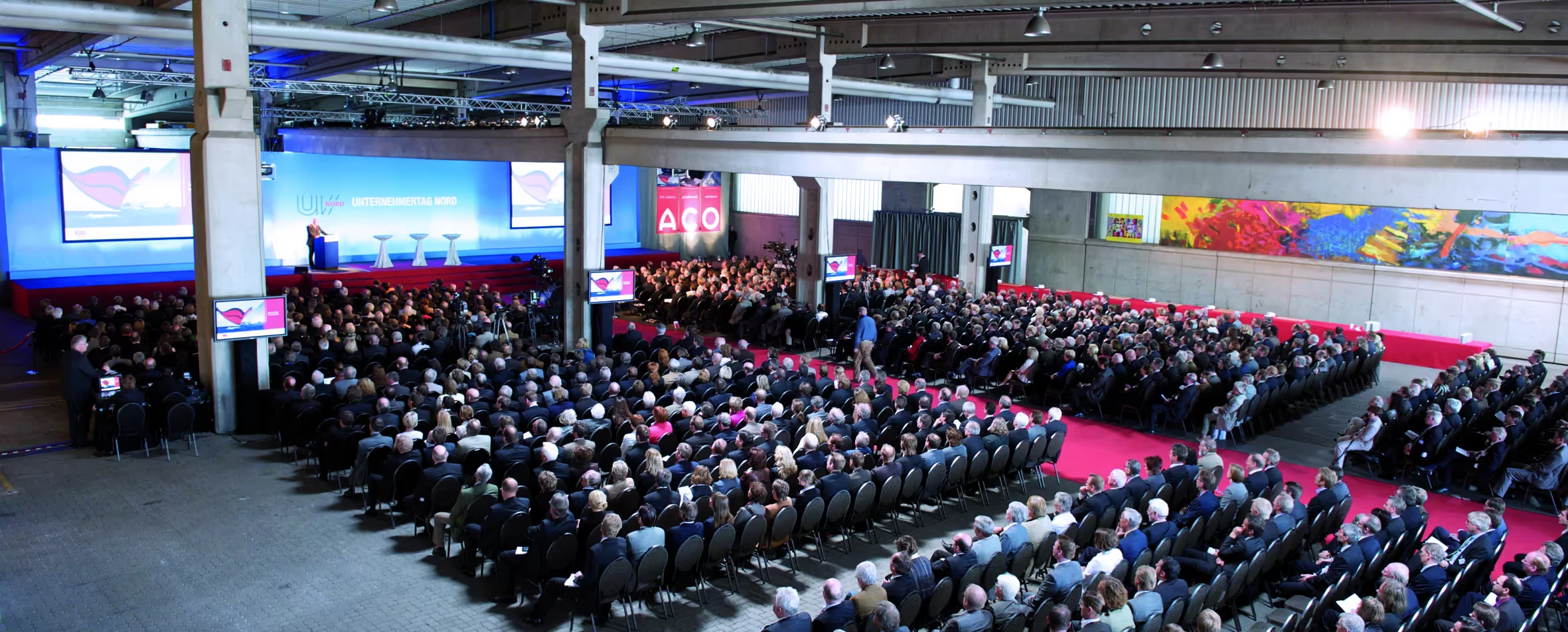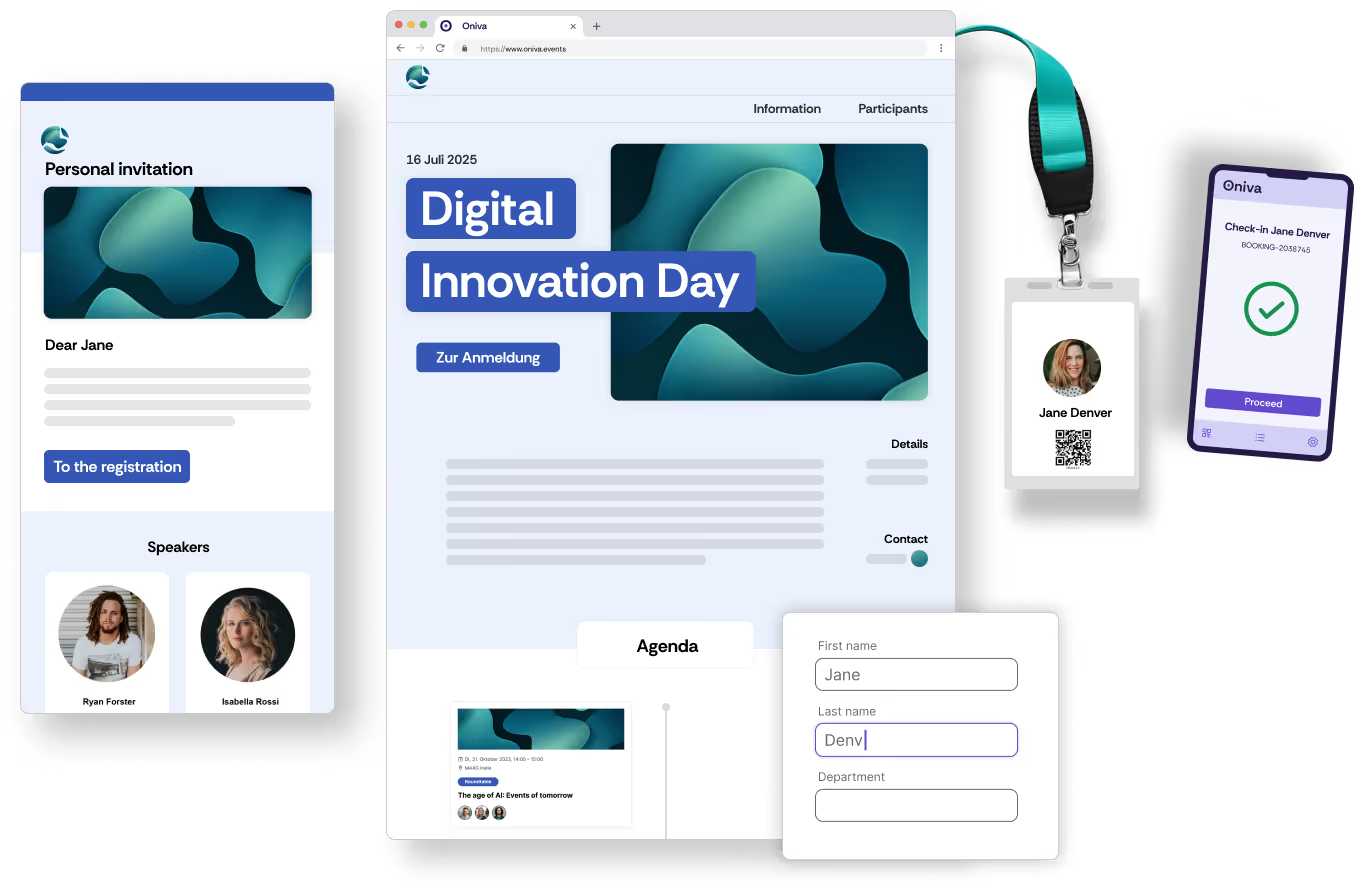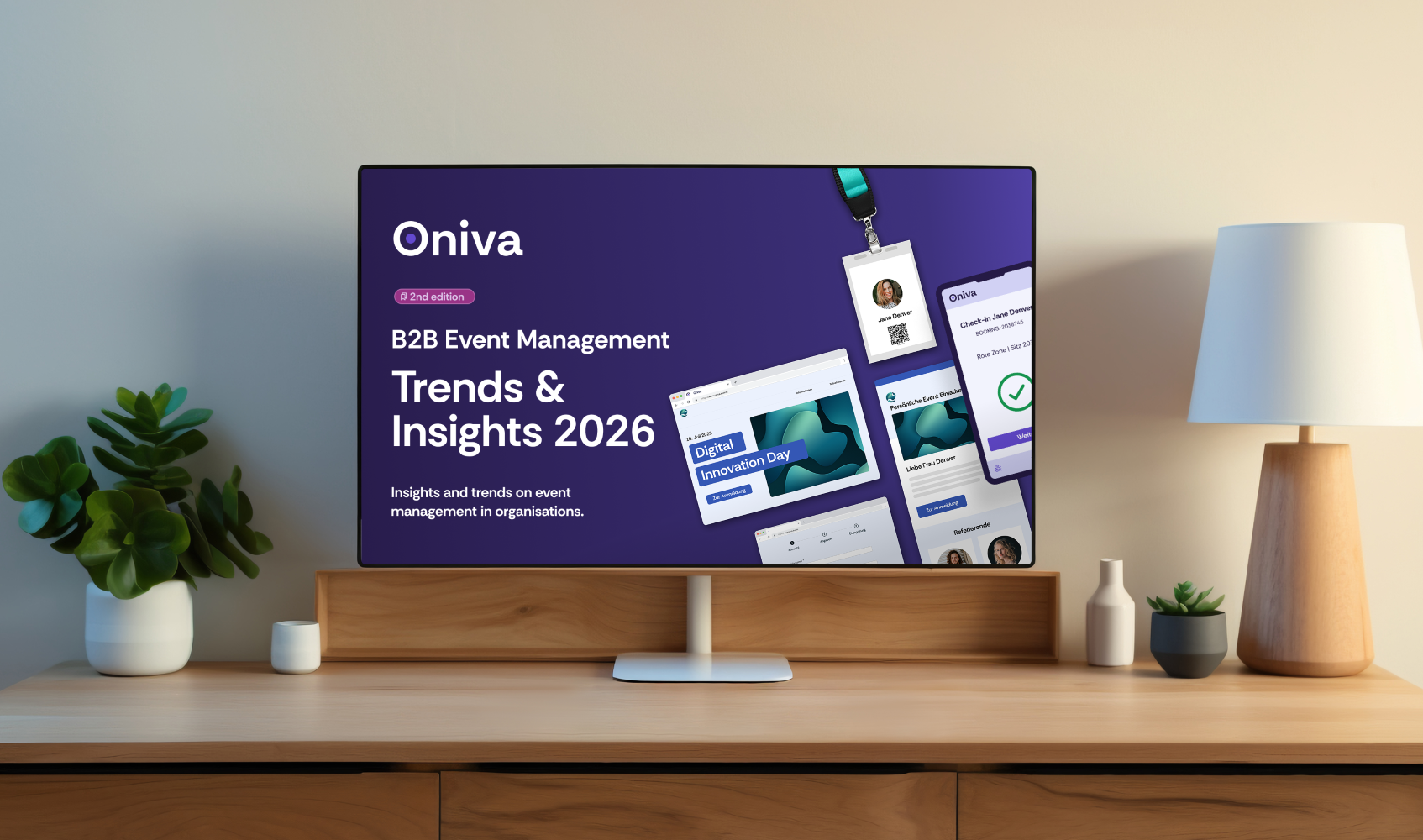Why congress organisation often pushes people to the limit
When planning a congress, it is often not just the long to-do list that increases the pressure, but the sheer number of unforeseen events. A classic example: shortly before the opening, the number of seats must be reduced for safety reasons – with a fully booked hall. Such last-minute changes require quick decisions and targeted communication with all stakeholders. There may also be delays during set-up, for example due to late deliveries or technical difficulties. The most critical moments are often the minutes before official admission or the start of the programme, when every action has to be precise. These are the phases when tension is at its peak – and exactly here it is decided whether stress escalates or is handled professionally.
Planning with foresight – the foundation for a stress-free congress
An effective way to prevent stress in congress organisation is to work with a co-lead. Two people share overall responsibility for the project, which allows them to relieve each other. This structure requires close coordination but creates important breathing space – for breaks or to cover absences. Equally important is building in time buffers. Ideally, the entire set-up should be completed around two hours before admission. This extra time makes it possible to react flexibly to unforeseen situations without putting the flow of the congress at risk.
Clear division of roles and communication as a stress brake
When running a congress, the clearer the division of responsibilities, the lower the risk of misunderstandings and hasty ad hoc solutions. A structured schedule and detailed checklists for set-up, operations, and dismantling provide transparency across the entire team. Deputy roles should be defined in advance for key positions, so that unexpected absences can be covered without panic. In critical moments, composure is key – some problems cannot be solved immediately, and the focus should always remain on the aspects that can still be influenced.
Technical reliability at congresses – no room for glitches
Technical failures are among the biggest stress factors in congress organisation. To minimise risk, it is advisable to work with experienced technical partners who can handle the specific requirements of a congress. A full rehearsal on site is essential to test lighting, sound, presentations, and possible live streams under real conditions. This allows not only early detection of technical weaknesses, but also targeted programme adjustments. Critical programme points should always be backed up with a plan B – whether spare equipment, alternative media, or adjustments to the running order.
Self-care in the hot phase of congress organisation
Especially on event day, many organisers tend to neglect their own needs. Yet adequate breaks, balanced meals, and enough fluids are crucial to staying focused over long hours. Those who are mentally and physically fit make clearer decisions and respond more calmly to changes. It is worth scheduling fixed breaks – and sticking to them. A mental emergency plan is also useful: knowing how to react to unforeseen disruptions reduces the fear of losing control and provides reassurance.
Follow-up: winding down after a congress
Even after a successful congress, stress levels often remain high. To regain balance, one to three days should be consciously set aside for rest and recovery. This gives both body and mind the opportunity to process the many impressions. At the same time, follow-up is an important part of reducing future stress: a structured debrief with the team helps identify improvement potential and further optimise processes.
Mindset: redefining perfection
In congress organisation, perfection does not mean that everything goes exactly according to plan. Rather, it is about responding flexibly to the unexpected and making the best of each situation. From the guests’ perspective, many small mishaps do not seem nearly as dramatic as they feel internally. Focusing on maintaining the overall quality of the event, instead of trying to control every detail, allows for a more relaxed approach while still achieving excellent results.
Bonus: hacks for your event day
- Meditation: start the day with a short meditation to find calm and focus.
- Radios: use radios for communication within the organising team to enable quick coordination without long walks or delays.
- Celebrate your success: recognition matters – take the time to celebrate the successful congress together with your team.
- 80:20 rule: accept that not every guest will be completely satisfied, and focus on the majority who have a positive experience.
- Early arrival: arrive well before the team to check the first processes and mentally prepare for the day.
- Short check-ins: hold brief team updates during the day to keep everyone aligned and identify potential problems early.
Simplify your congress organisation with Oniva
Oniva offers a central event management platform that supports all phases of your congress – from marketing to check-in. An attractive conference website clearly presents the agenda, speakers, and key information. Registration is flexible, including personalised pricing for different target groups. Integrated newsletter tools allow for direct and targeted communication with participants. On site, the check-in app ensures smooth access control and individually configurable badges. Through the Event dashboard, you always have an overview of RSVPs, capacity, and feedback, enabling data-driven decisions and continuous improvement of your congress.



















.svg)















































































